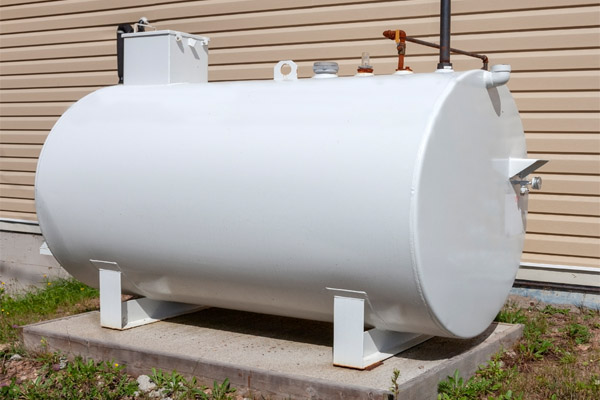As we head into 2025, ensuring that your heating oil tank is in top shape should be a priority. A well-maintained tank ensures your home stays warm throughout the winter, reduces the risk of costly repairs, and maximises the efficiency of your heating oil system. Whether you’re preparing for the cold months ahead or simply want to get a head start on maintenance, now is the perfect time to check if your tank and order from heating oil shropshire suppliers so that you are ready for the year.
In this blog, we’ll discuss essential tips for maintaining your heating oil tank and how you can keep it running efficiently throughout 2025.
1. Check for Leaks and Rust
One of the most important aspects of heating oil tank maintenance is ensuring that there are no leaks or rust. Over time, tanks can corrode due to exposure to moisture, causing leaks that not only waste fuel but can also pose significant environmental and safety risks. Regular inspections are essential for spotting any signs of rust, wear, or damage.
What to look for:
- Rust: If your tank is made of steel, check for any rust spots. While small spots of rust may be manageable, significant rusting can weaken the integrity of the tank and lead to leaks.
- Leaks: Look for any oil stains around the base or underneath the tank. If you notice any pooling oil, it’s critical to have your tank inspected by a professional.
- Dents or Damage: Physical damage can also cause issues with the tank’s functionality and safety. If your tank is dented or shows signs of structural damage, it’s best to consult an expert to ensure it’s still safe to use.
Tip: If your tank is over 15-20 years old, it may be time to consider a replacement, especially if signs of rust or corrosion are present.
2. Inspect the Oil Lines and Connections
The oil lines that connect your tank to your heating system play a critical role in ensuring that the oil is delivered properly. Over time, these lines can become brittle, clogged, or damaged, which can result in inefficient fuel use or even a system failure.
What to look for:
- Cracks or Wear: Inspect the lines for visible cracks or signs of wear. Damaged oil lines can cause leaks and disrupt the flow of oil.
- Loose Connections: Check the connections between the oil tank and the heating system to ensure they’re tight and secure. Loose connections can lead to fuel leakage or a loss of pressure.
- Clogs: If you notice a drop in system performance, your oil lines may be clogged. A professional cleaning may be necessary.
Tip: Regularly servicing the oil lines during annual maintenance can help avoid unexpected problems.

3. Monitor the Tank’s Oil Level and Usage
Keeping track of your oil levels is crucial for efficient heating and preventing running out of oil unexpectedly, which can lead to an inconvenient and costly emergency. In addition to monitoring oil levels, it’s important to be aware of your consumption patterns.
What to do:
- Install a Tank Gauge: Many modern heating oil tanks come with a built-in gauge, but if your tank doesn’t have one, consider installing one. This will help you keep a close eye on oil levels and avoid running low unexpectedly.
- Keep an Eye on Usage: If you notice that you’re using more oil than usual, it could be a sign of a leak, poor system efficiency, or other underlying issues.
- Plan Ahead for Deliveries: Be proactive about scheduling oil deliveries before your tank gets too low. Running out of oil during the coldest months can lead to delays and service issues.
Tip: Try to avoid letting your tank go below one-quarter of its capacity, as running low can cause sludge buildup and other issues in the system.
4. Clean and Replace the Tank’s Filter
Just like your heating system, your oil tank has a filter that helps remove impurities from the fuel before it enters your heating system. Over time, this filter can get clogged with sludge or debris, which can affect the performance of your heating system and lead to costly repairs.
What to do:
- Check the Filter: During your annual maintenance check, ask your technician to inspect and clean the oil filter. This ensures that your heating system operates efficiently and reduces the likelihood of system failure.
- Replace the Filter if Necessary: If the filter is worn out or beyond cleaning, replacing it is a simple and cost-effective way to keep your system running smoothly.
Tip: Make sure your technician cleans or replaces the filter during every annual maintenance visit to keep everything in top condition.
5. Consider Upgrading to a Double-Walled Tank
If your tank is more than 10 years old, you might want to consider upgrading to a double-walled tank. These tanks have an inner and outer layer, with the outer layer serving as a backup in case of a leak in the inner layer. Double-walled tanks are generally more durable and less prone to corrosion, making them a safer and more long-lasting option for homeowners.
Why upgrade:
- Improved Durability: Double-walled tanks are less likely to rust and are built to withstand extreme conditions.
- Increased Safety: The outer wall acts as an added safety feature by containing any oil leaks that may occur from the inner wall, reducing the risk of environmental damage or costly repairs.
- Longer Lifespan: Double-walled tanks tend to last longer than single-walled models, giving you peace of mind for years to come.
Tip: If you’re planning to replace your tank, discuss the benefits of double-walled options with your heating oil supplier to see if it’s right for your home.
6. Ensure Proper Ventilation Around the Tank
Proper ventilation around your heating oil tank is essential to prevent dangerous fumes from building up, which can lead to system malfunction or potential safety hazards. Ensure that the area around your tank is well-ventilated and free from debris that could obstruct air circulation.
What to do:
- Clear the Area: Keep the area around your tank clear of leaves, grass, or other debris that can block vents.
- Check Vents Regularly: Ensure that your tank’s ventilation system is not obstructed and is working properly.
Tip: Keep the area surrounding the tank dry and clean to avoid moisture buildup, which can lead to rust and corrosion over time.
Conclusion
Proper maintenance of your heating oil tank is essential to ensure that it operates safely and efficiently throughout 2025 and beyond. By inspecting for leaks, checking oil lines, monitoring fuel usage, and scheduling regular cleanings, you can extend the life of your tank and avoid unexpected breakdowns during the cold winter months.
If you haven’t already, make sure to schedule a professional inspection before the heating season begins. With these simple maintenance tips, you’ll ensure that your heating oil system is ready to keep you warm all year long.









